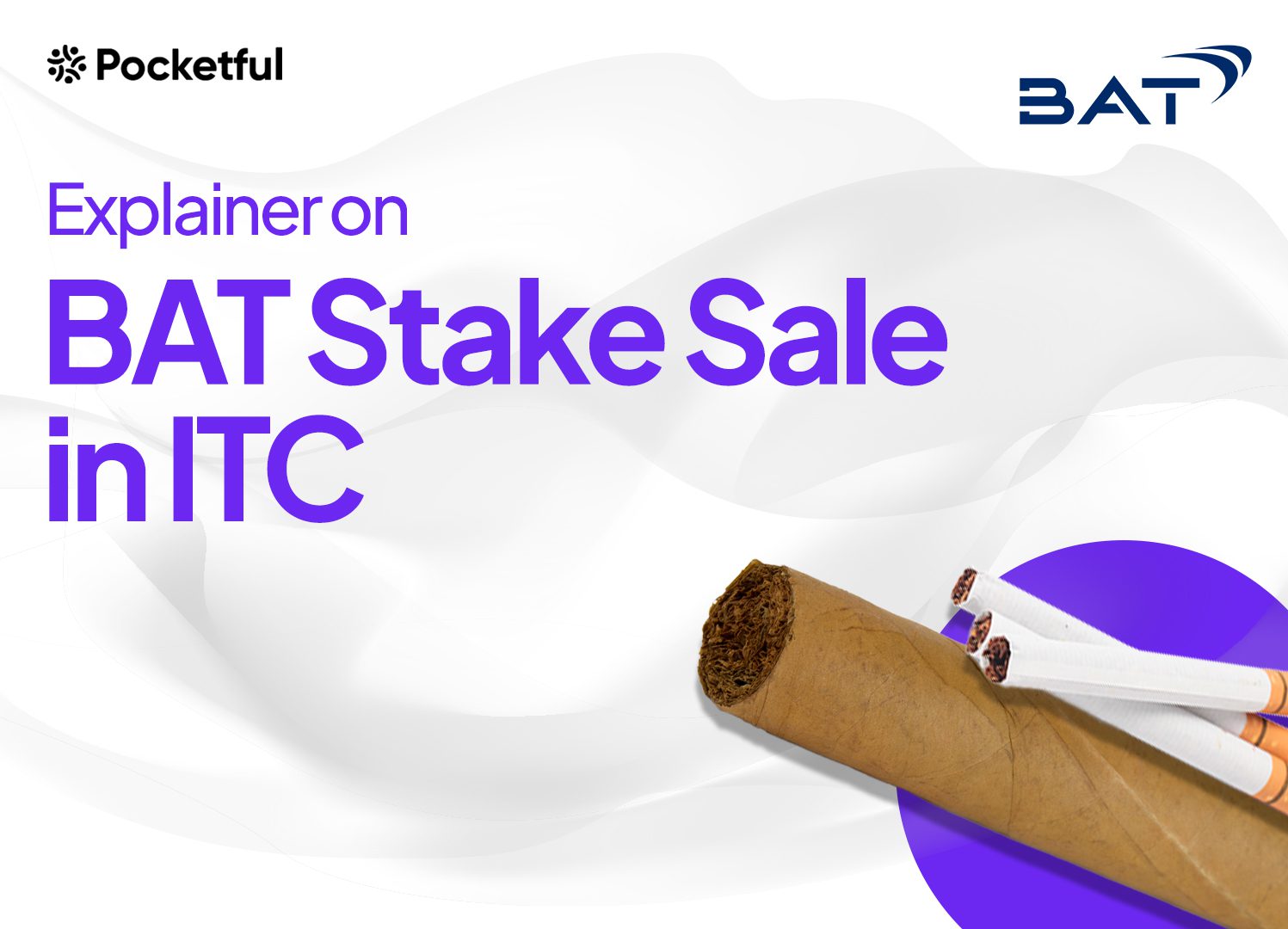| Type | Description | Contributor | Date |
|---|---|---|---|
| Post created | Pocketful Team | Apr-01-24 |
Read Next
- What Is Quick Commerce? Meaning & How It Works
- Urban Company Case Study: Business Model, Marketing Strategy & SWOT
- Rapido Case Study: Business Model, Marketing Strategy, Financial, and SWOT Analysis
- Trump Tariffs on India: Trade vs Russian Oil
- NTPC vs Power Grid: Business Model, Financials & Future Plans Compared
- Exxaro Tiles Vs Kajaria Tiles
- Adani Power Vs Adani Green – A Comprehensive Analysis
- Blinkit vs Zepto: Which is Better?
- UltraTech Vs Ambuja: Which is Better?
- Tata Technologies Vs TCS: Which is Better?
- Tata vs Reliance: India’s Top Business Giants Compared
- HCL Vs Infosys: Which is Better?
- Wipro Vs Infosys: Which is Better?
- Voltas vs Blue Star: Which is Better?
- SAIL Vs Tata Steel: Which is Better?
- JK Tyre Vs CEAT: Which is Better?
- Lenskart Case Study: History, Marketing Strategies, and SWOT Analysis
- Parle Case Study: Business Model, Marketing Strategy, and SWOT Analysis
- Tata Motors Vs Ashok Leyland: Which is Better?
- Apollo Tyres Ltd. vs Ceat Ltd. – Which is better?
- Blog
- bat stake sale in itc overview reasons and impact on shareholders explained
BAT Stake Sale in ITC: Overview, Reasons, and Impact on Shareholders Explained

Introduction
British American Tobacco (BAT) is a major shareholder in ITC. But, recently, BAT released a statement indicating a major stake sale. Do you wonder what the future holds for BAT’s remaining stake in ITC?
Buckle up! In today’s blog, we will dive deep into the recent sale of a portion of BAT’s stake in ITC and the reasons behind it.
BAT – An Overview
BAT stands for British American Tobacco, a multinational tobacco company and a leading consumer goods business. It was founded in the year 1902 by James Buchanan Duke and is now the world’s largest tobacco company by net sales. The company currently operates in 180 countries, and its brands include Dunhill, Kent, Lucy Strike, Pall Mall, and Rothmans. It is a listed company, and its ordinary shares are listed on the NYSE (New York Stock Exchange) in the form of American Depositary Shares (ADR). Additionally, the company also has a secondary listing on the Johannesburg Stock Exchange.
The company’s corporate purpose includes providing adult consumers with a range of enjoyable and less risky products and encouraging smokers to switch to scientifically-substantiated, reduced-risk alternatives.

ITC – An Overview
ITC Limited is an Indian conglomerate headquartered in Kolkata, India. The company has a diversified presence across several industries such as FMCG, hotels, information technology, packaging, paperboards, and agribusiness. The company is a major player in the Indian economy and exports its products to over 90 countries.
ITC holds a rich history that traces back to 1910 as the Imperial Tobacco Company of India Limited. The company initially focused on tobacco products and established its first cigarette factory in Bangalore in 1913. The name was later changed to India Tobacco Company in the year 1970. The company continues to innovate and expand its FMCG portfolio while focusing on sustainability initiatives.
Read Also: ITC Case Study: Business Model, Financials, and SWOT Analysis
Holding Pattern
BAT currently owns 29% of ITC, the Indian Tobacco Company. On March 13, 2024, BAT sold 43.7 crore shares of ITC at INR 404 per share for a total of INR 17,491 crore, trimming its holding to 25.5%. The company plans to use the net proceeds of the block trades to buy back its shares over the period ending December 2025, starting with INR 7430 crore in 2024.
BAT has said that a 25% stake in ITC should be sufficient to retain strategic influence, including veto rights. The stake sale was completed through a block deal. Block deals involve selling a large number of shares all at once, usually at a discounted price. This method ensures a quick and efficient sale of significant stakes without significantly impacting the overall market price.

Reasons for Stake Sale
There are two main reasons why British American Tobacco (BAT) decided to sell a portion of its stake in ITC.
1. Returning Cash to Shareholders
BAT faced pressure from investors to receive a bigger share of the company’s profits. Selling a part of their ITC stake provided BAT with a significant amount of cash that they could use for stock buybacks and dividends.
2. Strategic Shift
The global cigarette industry is declining due to falling smoking rates and increasing government regulations. By selling some of its ITC holdings, BAT might be freeing up capital to invest in other areas or emerging technologies, which could include smokeless alternatives like vapes, heated tobacco products, or even exploring new ventures.
Impact on Shareholders of ITC
- With BAT selling a portion of its stake, more ITC shares become available for trading in the open market. This increased liquidity can attract new investors and make it easier for existing shareholders to buy or sell their holdings.
- The initial announcement of the stake sale caused a temporary dip in the ITC’s share price. However, it quickly recovered and was up around 4%.
- Also, BAT’s long association with ITC might have provided strategic benefits in terms of knowledge sharing or market access. Reduced ownership can weaken this partnership and the investor’s interest as well.
- Large block deals can cause temporary fluctuations in the share price, which can distract shareholders.
- The use of the proceeds is still uncertain. If they do not reinvest the funds strategically, it could raise concerns about BAT’s future direction, potentially impacting investor sentiment towards ITC.

Future Outlook
Predicting the future outlook of ITC is complex and depends on several internal and external factors. Some of these factors are listed below,
- With reduced foreign influence, ITC might get greater freedom to explore new business avenues beyond cigarettes. This will lead to diversification and higher growth in non-cigarette segments like FMCG.
- A more independent ITC can attract new investors seeking exposure to a broader portfolio.
- Also, the transition to a more independent structure could lead to a period of uncertainty for investors.
Overall, the future outlook of the ITC stake sale is ambiguous. While the short-term impact might involve price fluctuations, the long-term directions hinge on market forces and BAT’s internal strategies. Even though a complete exit from ITC is less likely soon, it cannot be entirely ruled out in the long term.
Successfully diversifying ITC’s product portfolio and navigating the regulatory environment will be important for long-term success.
Read Also: What is a Bonus Issue? Meaning, Process, Key Dates, and Impact Explained
Conclusion
On a parting note, the sale in ITC marks a turning point for the Indian tobacco giant. While the future remains uncertain, there is a mix of benefits and challenges on the horizon. On the positive side, ITC gains greater autonomy to explore new ventures. Eventually, the company’s success will depend on its ability to adapt.
Disclaimer: The securities, funds, and strategies mentioned in this blog are purely for informational purposes and are not recommendations.
Frequently Asked Questions (FAQs)
Will BAT sell its entire stake in ITC eventually?
This is uncertain; BAT has not indicated further stake sales, but the long-term strategy could change.
Does this stake sale mean the end of cigarettes in India?
No, but the cigarette market is declining, and ITC might need a strong non-cigarette strategy to survive in the long run.
Why did BAT sell its stake in ITC?
BAT had two broad reasons for its stake sale, which are returning cash to shareholders and a strategic shift.
What is the overall outlook for ITC?
The company’s future outlook is uncertain, but if they diversify effectively, the future can be promising.
Will the stake sale impact ITC stock price?
The stake sale may result in short-term uncertainty. However, the long-term impact depends on ITC’s future performance.
Disclaimer
The securities, funds, and strategies discussed in this blog are provided for informational purposes only. They do not represent endorsements or recommendations. Investors should conduct their own research and seek professional advice before making any investment decisions.
Article History
Table of Contents
Toggle